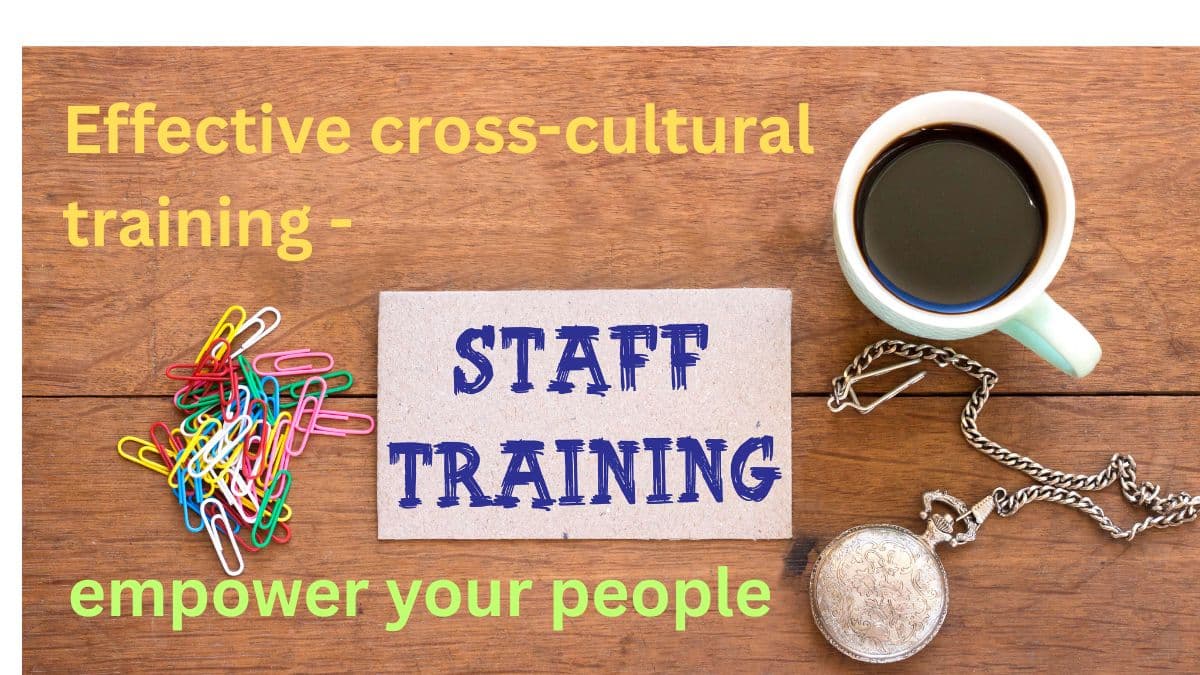What is Cultural Intelligence?
Wikipedia defines Cultural Intelligence or CQ as "Cultural intelligence or cultural quotient (CQ) is a term used in business, education, government and academic research. Cultural intelligence can be understood as the capability to relate and work effectively across cultures. Originally, the term cultural intelligence and the abbreviation "CQ" was developed by the research done by Soon Ang and Linn Van Dyne as a researched-based way of measuring and predicting intercultural performance."
That was in 2003. Since then a lot of other definitions have emerged as it always happens in academia. I prefer the original definition of cultural intelligence although it should be expanded into non-work-related situations as well.
Why is Cultural intelligence important?
If we go back 40 years or more we lived in a completely different world. The economic wealth was centralised in Europe and the USA with a few isolated wealthy spots in Asia and South America. Trade was limited to goods and we didn't know about outsourcing or international joint ventures on larger scales. Travelling long distances was out of reach for most people and communicating over long distances took forever and was really expensive too.
The rise of emerging- and frontier markets, technological developments, de-regulation and many areas across the globe and increased political stability fueled the development of a new era; globalisation. With globalisation came the migration of people who wanted to work or study elsewhere - far away. International joint ventures and partnerships, as well as outsourcing of production and later services, became the norm. The rise of the new economies and the development of new middle classes lead to a much more balanced global ecosystem with global wealth more distributed than ever before in history. A sign of that is that the US part of the global economy has declined by more than 50% from 1960 to 2014 according to Forbes. That is good news for the world.
The distributed wealth, distribution of work, migration and global consolidation id the reason why possessing cultural intelligence is one of the most important leadership skills you can possess.
Gugin is also using all its skills in emotional intelligence and cultural intelligence to train the EU defence industry to use its vast cultural diversity to boost innovation and collaboration through dedicated workshops
Leaders with low cultural intelligence fail badly
The rapid change in the demand for new leadership skills has left a lot of leaders behind who fail badly despite that they previously were very successful and experienced. It is a situation you can compare to the early days of the IT revolution. At that time in the early 70'ies, you could find leaders who saw the potential in IT and you could find leaders who resisted its introduction. Today we have leaders who believe they will remain successful and they know everything worth knowing about leading people.
And when they feel the pressure to understand cultural diversity they fall into using foolish simplistic, cultural stereotypes developed by Geert Hofstede 50 years ago. Read here why you should never use Hofstede's simplistic view of cultural differences
How does Gugin train leaders to become culturally intelligent?
We have always argued that cultural stereotyping is a stupid thing to do (excuse my French). We all belong to a large number of different cultures. You belong to cultures associated with your job, gender, age group, lifestyle, sexuality, education, religion, interests, nationality and many more. Think for yourself. Which of the cultures you belong to is the most important? We have asked more than 6000 people (clients of ours) across the globe. Less than 5% felt that their national culture was the most dominant one. More than 85% had a mix of cultures where more than 2 cultures were equally important.
Therefore it makes NO SENSE to divide people into national stereotypes and assume they share common behaviour and values.
Instead of stereotyping we train our customers to identify and reconcile cultural dilemmas. This way you respect different points of view, different values and different behaviour equally, and none of the parties involved feels they are in a competition.
Traditional cross-cultural training based on Hofstede often assumes that cultural differences are a problem that calls for a solution - a compromise. With that approach, you will always lose because you don't leverage the full potential of having cultural diversity.
Apart from focusing on reconciling cultural dilemmas another aspect of possessing cultural intelligence is the ability to focus on the commonalities instead of the differences when you engage with a group of people who is different from your own. It takes some training to learn it. Here is a test to check your own or your colleagues' level of cultural intelligence when it comes to focusing on the commonalities instead of the differences.
We also train you to understand other people's value systems. That is a very important skill to have. If you judge other people's behaviour with your own norms and values you will inevitably create a lot of unnecessary trouble both for yourself and others. You will let people down you need to be close to you, you will lose opportunities you would have won if you had been more cultural intelligent and people will leave you because they consider you arrogant. We have seen it all over the 17 years we have worked with clients all over the world.
Here are some cultural intelligence training for your organisation
Gugin Course module: Introduction to Cultural Intelligence
Learn Cultural Intelligence and Innovation in one intensive and fun workshop
Topics covered
There is more than one right way to do things.
The layers of Culture.
Identifying other people’s norms and values.
Cultural Identities.
How to change your own behaviour.
The course, Introduction to Cultural Intelligence is also available as an online course here
Gugin Course module: Advanced Cultural Intelligence
Topics covered
Avoid cultural stereotyping.
Identifying cultural dilemmas.
Reconciliation of cultural dilemmas.
Motivating culturally diverse Teams.
See all Gugins intercultural courses here
Please contact us for a discussion on how we can upgrade leadership skills in your organisation. We deliver courses across the globe for companies, organisations, corporate universities, business schools, governments, non-profit organisations etc.

Dr Finn Majlergaard
CEO Gugin, Professor, Keynote Speaker, Author
- We align your corporate culture with your strategy.
- We take you safely through major changes in your organisation.
- We develop the crucial cultural intelligence in your organisation by training your employees and leaders
- We help you develop a competitive advantage with a unique corporate culture
Gugin has helped more than 600 companies around the world creating a winning corporate culture.

I just say things as they are…
I just say things as they are – is a phrase we often hear. It reveals that the person saying it has very low cultural and emotional intelligence

Cross-Cultural Team Development in the Southern French Alps
Team development in the southern French Alps is a great way to develop your cultural competence is in your team together with the Gugin experts

Why EU Defence Collaboration Depends on Cultural Intelligence
Emotional and cultural intelligence are key to successful EU defence collaboration, enabling trust, cohesion, and innovation across borders.

Learn how to create an inclusive workplace culture
This Gugin video teaches you how you can create an inclusive workplace culture so you get motivated, satisfied and innovative employees in your organisation

Take the test – How culturally intelligent are you really?
How culturally intelligent are you? Take this simple test and get and idea. It is one of many small tests Gugin uses in its leadership training
Cross-Cultural Training – crucial for your company’s success
Cross-cultural training boosts your success by enhancing communication, reducing conflict, and building culturally agile teams. Here is why Gugin leads the way.

Effective cross-cultural training – empower your people
Unlock your organisation’s potential with cross-cultural training that builds understanding, boosts collaboration, and drives inclusive, high-performing teams.

